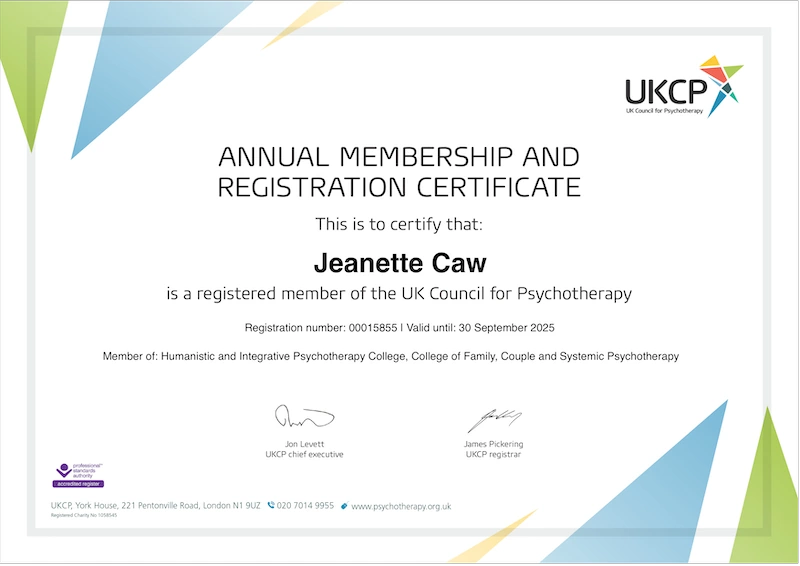Counselling for Depression
Depression can be seen as the mental health equivalent to the common cold in physical health. One in four of us will experience an episode of depression in our life time. The World Health Organisation estimates that depression is the fourth most prevalent and the costliest illness in the world. Yet, there can still be secrecy and shame surrounding feeling depressed and it can be hard to admit to.
The severity of depression varies from mild to severe. It affects individuals in different ways but often the following symptoms are experienced:
• Tiredness
• Irritability
• Difficulty falling asleep or staying asleep
• Either loss of appetite or wanting to eat continually
• A feeling of being disconnected from the world and that other people are far away
• A slowing down of movement and speech
• Trouble concentrating
• Hopelessness
• Feelings of failure
• Suicidal thoughts
• Low self-esteem
The NICE guidelines recommend that a combination of medication and talking therapies offers the best evidence base for overcoming depression. With mild to moderate depression, medication may not be necessary.
Feeling depressed is a horrible experience and often worrying for the individual’s family and friends. However, recovery from depression is the norm. Depression will usually resolve itself eventually if left untreated. However, talking therapies are recommended and/or medication as this makes recovery much swifter and less debilitating.
Depression can be triggered by a recent life event, for example bereavement, divorce, redundancy etc. or it can emerge with no apparent cause. Often depression is maintained by a person’s attempts to manage their situation as best they can. However, some of these coping strategies are actually unhelpful. For example, withdrawing from family and friends, staying in bed later in the morning to overcome insomnia, drinking or eating more are some typical coping mechanisms.
Psychotherapy or Counselling for Depression
I work with depression by offering an explanation for what the illness is and how it operates. I work with my clients to identify critical events that may have led to the onset of depression. I help to identify unhelpful thoughts or behaviours that may be maintaining the depression. Then I offer strategies for how to challenge these using cognitive behavioural techniques. I also draw on Acceptance and Commitment Therapy to offer an alternative approach to manage uncomfortable thoughts and feelings. I may suggest homework to do between sessions and reading that I think will be helpful.
Depression affects many areas of our lives. It affects the way we think, feel what we do, how we behave and our abilities to manage relationships and life situations. All of these aspects are connected to each other and managing to change one of them will have a knock on effect to the others. This inter-relatedness of effects often occurs outside of our awareness. Starting to understand this relationship means that you can begin to gain control of aspects of your life and make the changes you want. Doing this with the support of a therapist is helpful, both in terms of offering encouragement and reflecting together on the changes you want to make and your progressing recovery.
Perhaps the most important part about the way I work is that I utilise my position as a therapist to offer a warm, non-judgmental, available and attuned presence. Talking with a therapist who is empathic and understanding can be incredibly healing in itself. It can feel a blessed relief to have someone else know what you are talking about and how dreadful you feel. In addition, in my work I seek to clarify, make links and connections for my clients. This process often leads to increased awareness and insight, with ‘aha’ moments of dawning realisation. Such experiences are helpful in identifying ways that changing habits, relationships, work etc. can aid the recovery from depression.
Depression is often linked with and experienced alongside anxiety. In fact depression and anxiety can be seen as two sides of the same coin. If you want to know more about anxiety, please click on the stress and anxiety section under the ‘Help With’ tab.
I have longstanding experience of working with clients who have suffered from depression, all of whom have recovered.
‘Promise me you’ll always remember: You’re braver than you believe and, and stronger than you seem and smarter than you think’ Christopher Robin to Pooh (by A.A. Milne).
If you would like to arrange an initial session or contact me about any of the other services mentioned in these pages
I practice within Sheffield from a venue in S7.


